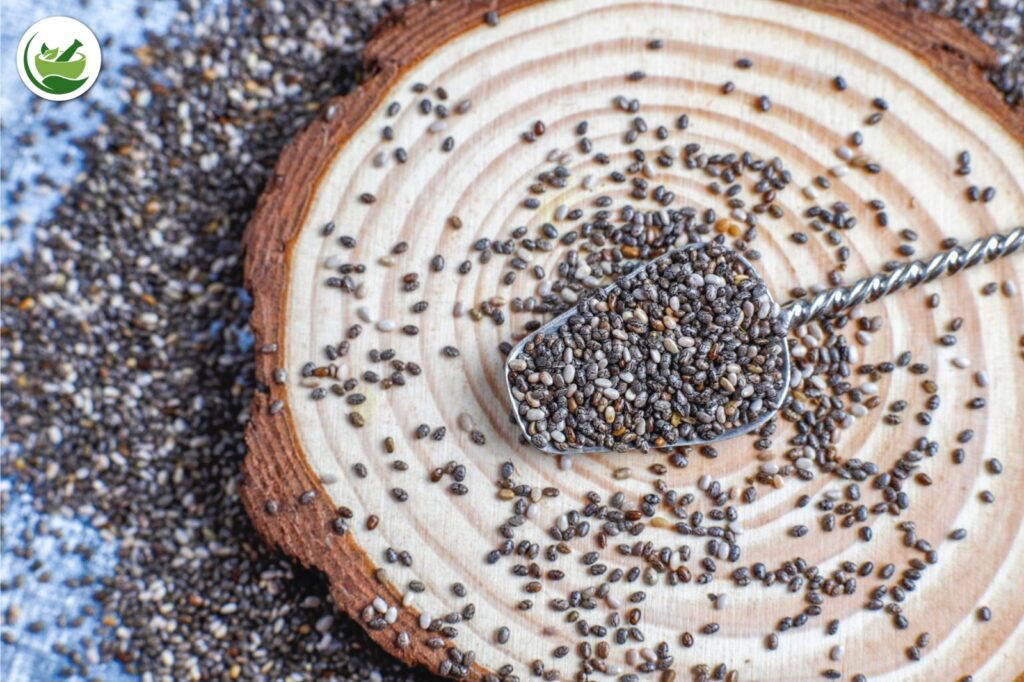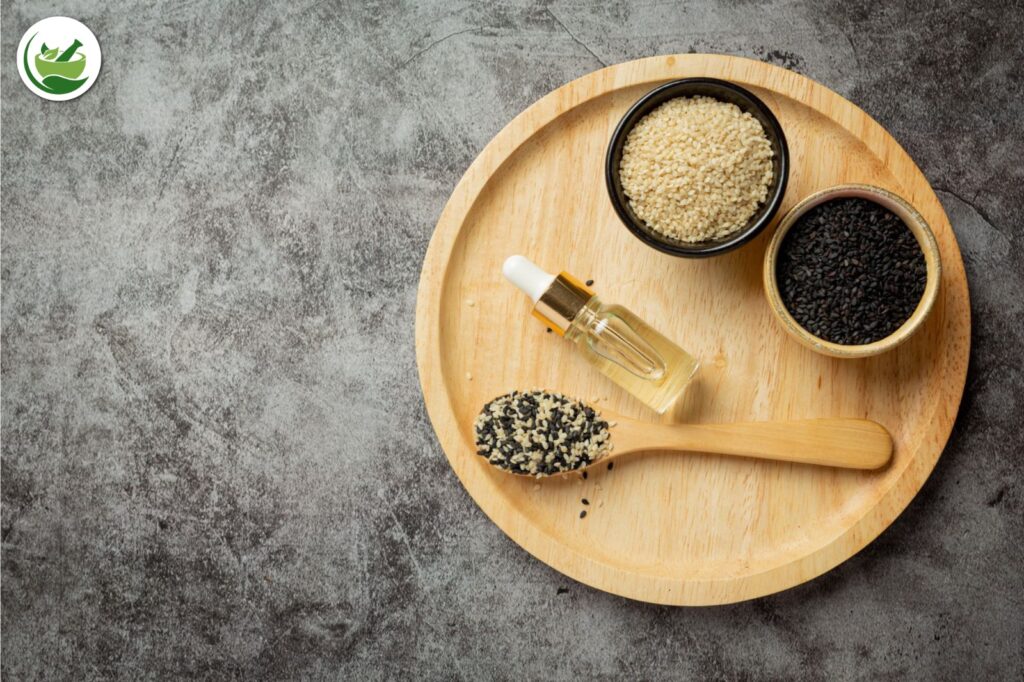
Chia seeds were once exclusive to health food stores, but now they’re ubiquitous – from food trucks and grocery stores to restaurant menus and your Instagram feed – for good reason.
Despite their diminutive size of just 1 millimeter in diameter, these unassuming black and white seeds are a nutritional powerhouse, packed with essential nutrients, some of which are particularly beneficial during pregnancy.
If you’re unfamiliar with chia seeds, you might harbor reservations or dismiss them as the latest overhyped trend. (Remember that unicorn drink from Starbucks? It was overrated.)
We understand the importance of being cautious about what you consume during pregnancy, prioritizing the well-being of both you and your precious baby. However, rest assured that chia seeds are generally safe for most people during pregnancy. Let’s delve into the details.
Read more about the Benefits of Chia Seeds
Benefits of chia seeds during pregnancy
Are you interested in learning about the benefits of chia seeds during pregnancy? Including chia seeds in your daily meals is remarkably simple, as these versatile seeds can seamlessly enhance a variety of dishes, from oatmeal to yogurt and even ice cream. Here are compelling reasons why integrating chia seeds into your pregnancy diet is a wise choice:
Digestive Health Support:
Pregnancy often leads to digestive challenges, such as constipation and hemorrhoids. Chia seeds, rich in fiber (8g per two tablespoons), can significantly contribute to smoother digestion, constituting 32% of the recommended daily value.
Iron Boost for Red Blood Cells:
Combating iron deficiency during pregnancy is crucial for preventing anemia-related complications. While prenatal vitamins or specific iron supplements are common recommendations, incorporating iron-rich foods is beneficial. Chia seeds, containing approximately 2mg per two tablespoons (11% DV), can aid in boosting red blood cell production.
Calcium for Baby’s Teeth and Bones:
Ensuring your baby’s optimal health involves maintaining an adequate calcium intake. Chia seeds offer a calcium source with 152mg per two tablespoons (15% DV), contributing to the recommended daily intake of 1,000mg.
Satiety and Protein Intake:
Pregnancy hunger can be insatiable, but overeating is not the solution. Chia seeds, with 4g of protein per two tablespoons (8% DV), can help you stay full longer, promoting a balanced and healthy diet.
Omega-3 Fatty Acids for Brain Development:
Omega-3 fatty acids are essential for various health benefits, including promoting healthy brain development in unborn babies. Chia seeds offer an alternative source with 5 grams of omega-3s per ounce, although it’s advisable to consider additional omega-3 sources, especially DHA and EPA found in fish, for comprehensive benefits.
Blood Sugar Regulation:
Pregnancy hormones can lead to increased blood glucose levels, necessitating control to prevent gestational diabetes. Chia seeds, high in fiber, can assist in regulating blood sugar by slowing down sugar absorption in the bloodstream.
Natural Energy Boost:
Growing a human can be exhausting, and maintaining energy levels becomes crucial. Chia seeds, as a healthy fat, may provide a natural energy boost, although it’s essential to acknowledge that they are not a cure for fatigue but a beneficial addition to a well-rounded diet.
Incorporating chia seeds into your pregnancy nutrition plan can offer a range of health benefits, supporting both your well-being and that of your growing baby.
Consequences of chia seeds during pregnancy

Is it possible to have too much of a good thing, even when it comes to our beloved chia seeds? Here are some important considerations:
Digestive Discomfort:
While chia seeds are a nutritious and natural choice, overconsumption may lead to digestive issues such as diarrhea and stomach discomfort. Given their high fiber content, it’s advisable to start with 1 to 2 tbsp per day, especially if you’re not accustomed to such dietary fiber. This precaution is crucial, particularly during pregnancy, where dealing with morning sickness is challenging enough.
Drug Interactions:
Although generally safe for pregnant women, it’s wise to consult with your healthcare provider before adding chia seeds to your diet. If you are already on medication for managing blood sugar levels, introducing chia seeds might interact with your medication, potentially causing fluctuations in your blood sugar levels.
Choking Risk:
While the likelihood of choking on chia seeds is low, there is still a potential risk. Chia seeds can rapidly swell and absorb water, expanding up to 10 times their original size.
If consumed dry and immediately followed by water, there is a slight chance they could swell in the esophagus, leading to a concerning experience—particularly uncomfortable if you’re already dealing with increased phlegm during pregnancy.
To mitigate this risk, consider sprinkling chia seeds on food or soaking them in liquid beforehand, allowing them to expand before consumption.
Allergic Reactions:
Although uncommon, some individuals may experience allergic reactions to chia seeds. Keep a watchful eye for signs such as tingling or itching sensations on the tongue or lips or an upset stomach resembling morning sickness. If you suspect an allergic reaction, it’s crucial to pay attention to your body’s signals and discontinue chia seed consumption.
Read more about Chia Seeds
Conclusion
To ensure a healthy pregnancy, pregnant mothers should prioritize a balanced and nutrient-dense diet. Chia seeds are a superfood that provides a variety of advantages, including helping infant growth, easing digestion, and regulating blood sugar levels. Including chia seeds in your pregnancy diet may be a tasty and diverse method to increase your nutritional intake, ensuring a joyful and healthy path to parenthood.
FAQ’s
Is the consumption of chia seeds safe during pregnancy?
Chia seeds are not only nutritious but are also considered safe for consumption during pregnancy and breastfeeding. While there are minimal risks associated, it is recommended to limit intake to no more than 1 ounce per day. Individuals with queries or apprehensions regarding chia seed consumption are encouraged to consult with a dietitian or medical professional for personalized guidance.
Why are chia seeds essential for babies?
Chia seeds are rich in vital nutrients crucial for a child’s development, including iron, zinc, omega-3, fiber, and calcium. Despite their small size, a mere tablespoon of chia seeds contains nearly as much iron as an equivalent amount of beef, making them a nutrient-dense addition to a baby’s diet.
What types of seeds support pregnancy?
Consuming seeds rich in omega-3 fatty acids is beneficial for the neurological and brain development of the baby. Enjoy a nutritious snack by incorporating a handful of sunflower seeds, almonds, or walnuts between meals. Enhance your breakfast by adding a cup of walnuts, sliced almonds, and pumpkin seeds. You can also sprinkle them on a salad or create a delicious trail mix.






